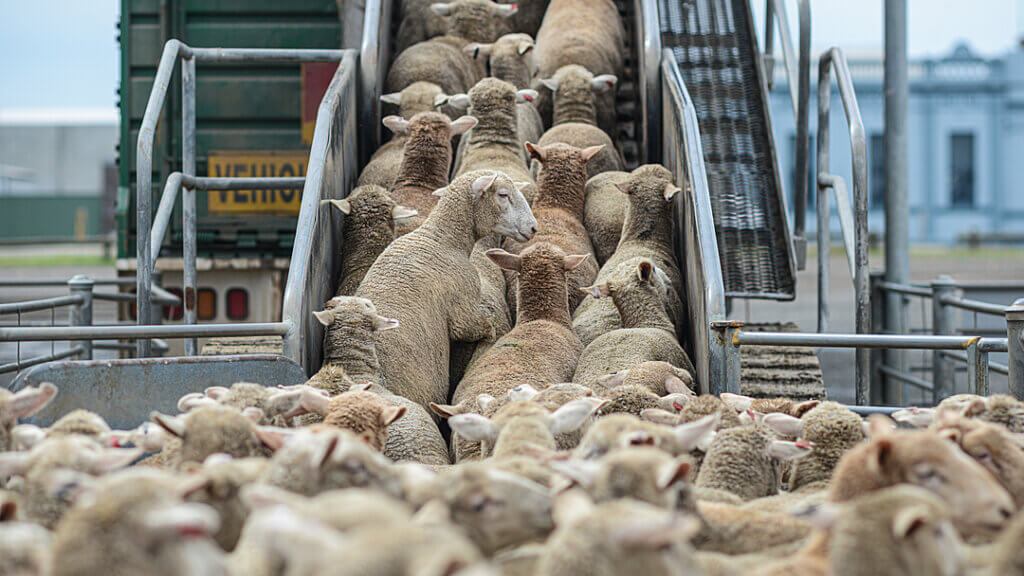Knitting, Crocheting, and More WITHOUT Wool!
Crafting is a great way to destress from school or activism and connect with your creative side, and one artistic modality that will never get old is working with fibers and textiles. This includes knitting, crocheting, embroidery, cross-stitching, weaving, macramé, and even sewing clothes.
The repetitive movements involved in these art forms are highly meditative, and studies have shown that knitting and crocheting can help people feel calmer and happier. Crafting in general has been shown to increase mindfulness, alleviate anxiety and insomnia, and promote well-being.
But your peace of mind shouldn’t come at someone else’s expense. Wool is commonly used in yarns sold for knitting, crocheting, and weaving, but sheep are routinely mutilated, beaten, and killed for their wool.
Sheep raised for their wool all over the world are castrated and their tails are cut off—all without any painkillers—when they’re only a few weeks old. Shearers are paid by volume, not by the hour, which means they work quickly and roughly, leaving animals injured, sometimes with open gashes that can become infected. Terrified sheep who don’t cooperate with the shearers are often beaten and kicked.
In Australia—where most of the world’s wool originates—farmers use tools similar to gardening shears to cut huge chunks of skin and flesh from lambs’ backsides, often without giving them any painkillers, in a barbaric mutilation known as “live lamb cutting.” And each year, tens of thousands of Australian sheep who no longer produce enough wool are crammed onto export ships to be sent to the Middle East, where they’re cruelly slaughtered. Those who survive the terrifying voyage are dragged off trucks by their ears and legs and are tied up and beaten. Then their throats are slit while they’re still conscious.
Supporting the cruel wool industry while trying to partake in a wholesome hobby is counterproductive. Luckily, many animal-friendly, wool-free vegan yarns are widely available at craft stores like Michaels, JOANN, and smaller online retailers—here’s a great list of ones we love!
Look for yarns made from rayon, cotton, hemp, linen, bamboo, Ingeo (from corn), and soy silk as well as synthetics like acrylic, nylon, and microfiber. Keep your crafting humane by avoiding all animal-derived materials—check the labels to make sure you’re not buying sheep’s wool, alpaca wool, or silk.
If you make any animal-friendly textile creations, tag us on Instagram (@peta2) when you post pics of them!
Text peta2 to 30933 for ways to help animals, tips on compassionate living, and more!

Terms for automated texts/calls from peta2: http://peta.vg/txt. Text STOP to end, HELP for more info. Msg/data rates may apply. U.S. only.





